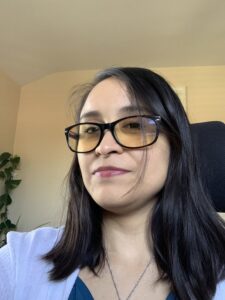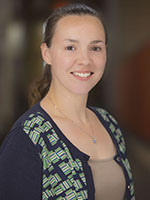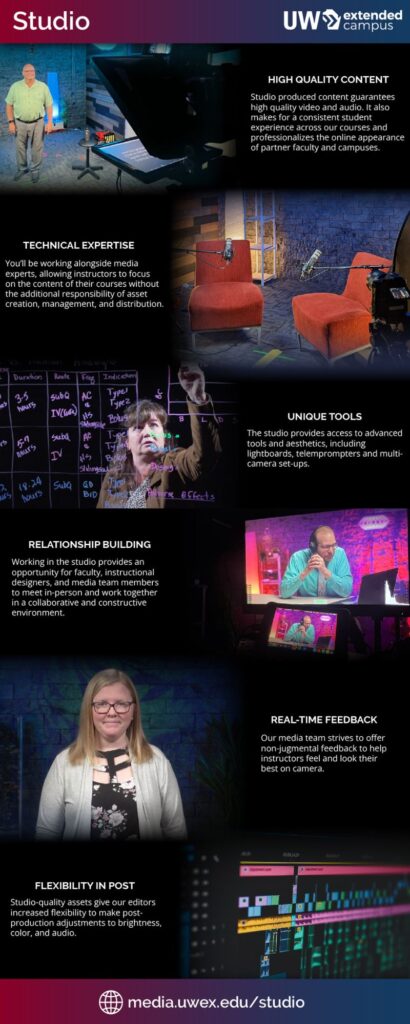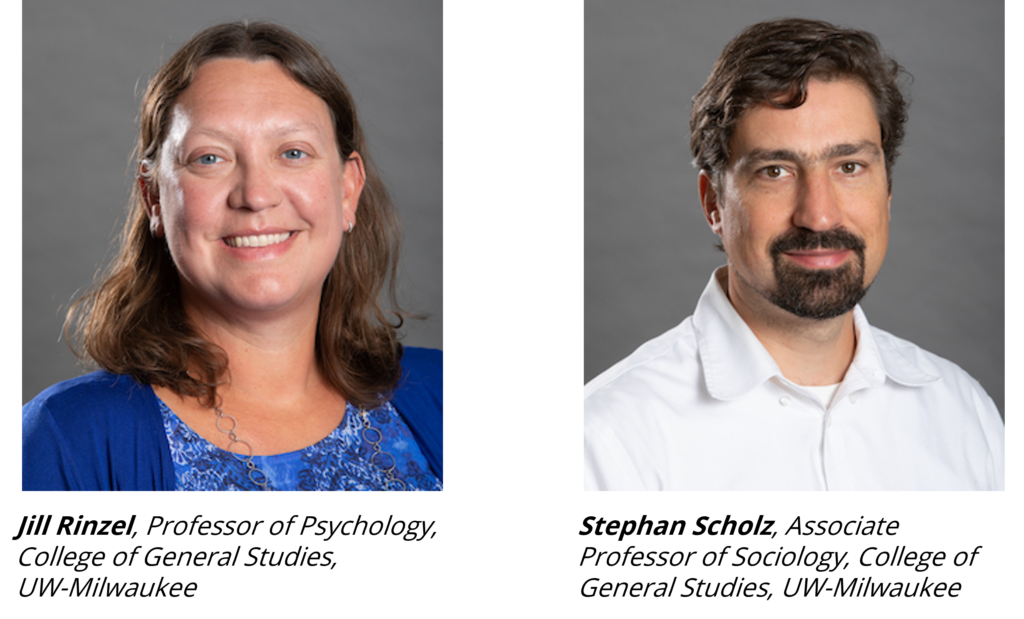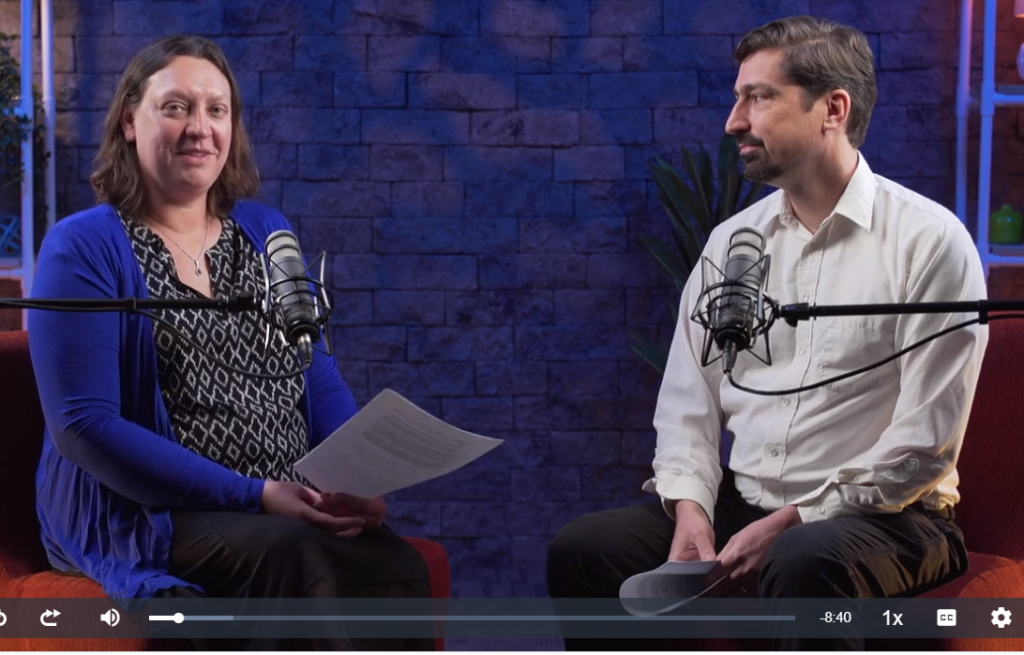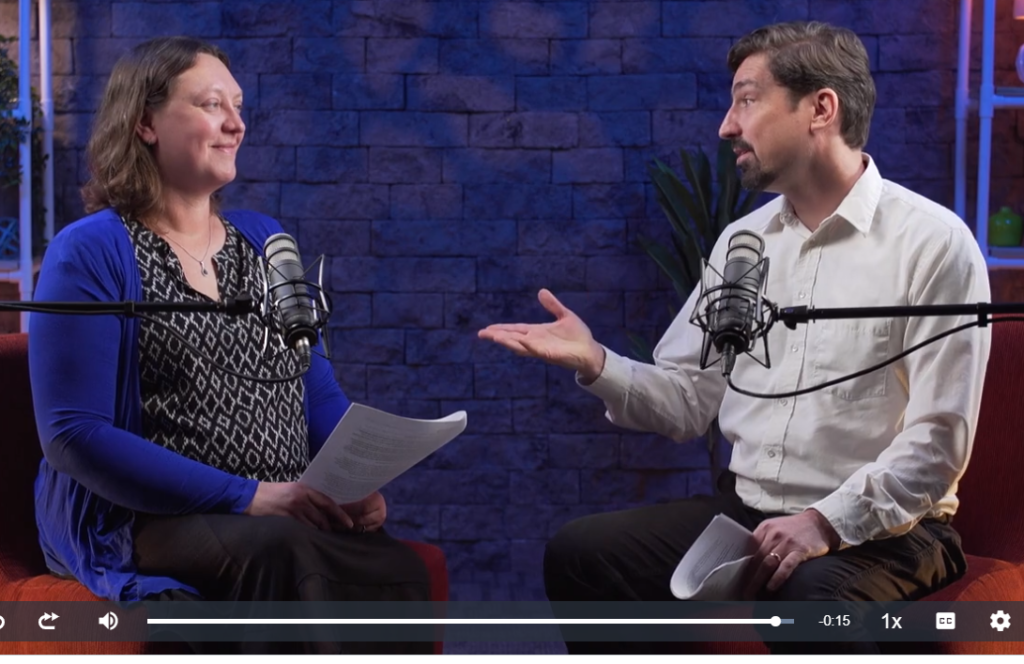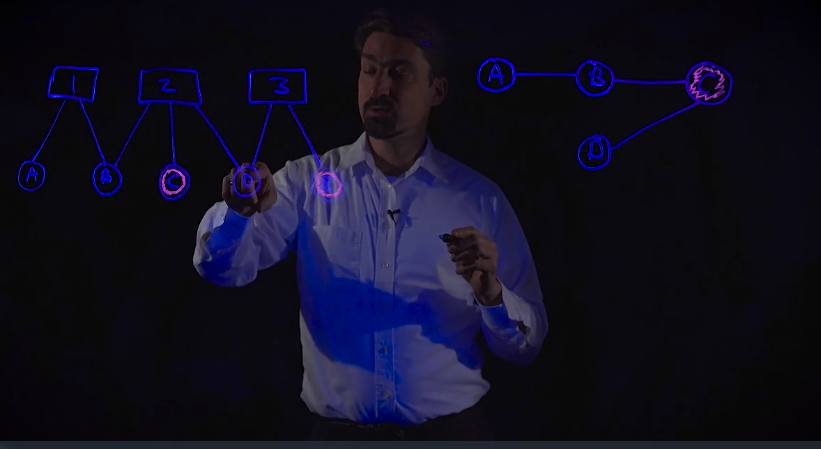In our latest “Faculty Spotlight,” we share the experience of instructor Blanca Munoz who proudly holds the distinction of being the first instructor to receive the Level Up digital badges upon successfully mastering each of the courses. Our Level Up professional development courses are designed to support faculty members in the planning, development, and teaching of online courses.
Instructor Munoz underscores how the Level Up courses empowered her to enhance her online course significantly. Through a comprehensive understanding gained from the Level Up courses, she was able to refine her course planning, development, and teaching methodologies, resulting in a more engaging and effective learning experience for her students. Her perspective of these courses serves as a testament to the profound impact they can have on faculty members, equipping them with the expertise and confidence needed to excel in online teaching. In the following interview, instructional designer Kristine Pierick sits down with Instructor Munoz to discuss the transformative benefits she gained from completing our Level Up courses.
Interview
What motivated you to enroll in these courses, and what were your expectations before starting them?
What motivated me to enroll in these courses was to learn more about how to prepare a good online class. I had taught synchronous online classes but not asynchronous, so the preparation was different. My expectations were to learn more about how to help students have a good experience with their online course as well as obtain all the necessary tools to prepare my course and provide students with good teaching.
Could you share some insights into the Planning Your Online Course? What key concepts or strategies did you learn that you found particularly beneficial?
Planning Your Online Course is the starting point for creating a great online course. What do we want students to learn at the end of the course? We cannot start creating a course if we do not have the main goal and the course objectives in front of us. This course helped me plan my course in a more organized way and take into account the course objectives. Also, it helped me write each of them considering they are divided into three parts: verb, content, and context. This is thinking about each lesson goal. In this course, I also learned how to create a course alignment map so that the course meets all the objectives in an organized way. Another thing that was beneficial and important to me is the levels of Bloom’s taxonomy, mainly the verbs because they help a lot when writing the course objectives. Before taking this class, I ignored how beneficial it is to start planning a course from its objectives.
How did Developing Your Online Course contribute to your understanding and execution of effective online teaching strategies? Were there any specific tools or methodologies introduced that stood out to you?
According to the course Developing Your Online Course, for an online course to be effective, we need different strategies. For example, after we have prepared the course objectives and the course alignment map, then we can start with the next steps, developing the lessons and assessments. To design a lesson, we can think about having different types of activities to help all students and their different needs. Achieving the main points of Equity, Diversity, and Inclusion, we can create formative assessments, summative assessments, and authentic assessments. By having multiple activities, we give students the opportunity to receive good feedback and re-learn what they studied to meet the learning objectives. Something that caught my attention was the use of scaffolding activities because they are good and very practical for students to reach the course goal. Another thing is the use of Universal Design of Instruction because it helps design courses that are accessible and inclusive for all people who want to take those courses.
Transitioning from course planning and development to actual teaching, what were some of the key takeaways from the Teaching Your Online Course? How did it help you in implementing your online teaching strategies effectively?
Teaching Your Online Course focuses on how important it is to be present as an instructor in the class during the whole semester. This course helped me think about how I could be more present in my class. So, I established my presence from day one with two videos. In one, I give a brief introduction about myself, and in the other, I give more information about the course; I recorded videos in each lesson as well. I’ll also reply to students’ discussion posts and give feedback on their assignments in a reasonable time frame. Giving them good feedback and time helps students to not continue doing the same in the next activities. This helps them to get and achieve the course objectives.
In what specific ways have these courses enhanced your ability to engage with students in the online learning environment? Can you provide any examples of strategies you’ve implemented successfully as a result of this training?
These courses have helped me improve student engagement by providing me with good strategies for how I, as a teacher, can be present and active in the course. Some examples they have given are providing various contact methods on how students can ask their teacher their questions and giving students feedback in a short time. It is important for the teacher to be part of the discussion posts. To be present in the course, I have two videos at the beginning of the course, one to welcome students to class and the other to introduce myself and give a short biography. Also, for each lesson, I prepared videos to give them a brief review of what they would find in each chapter.
One concern many educators have with online teaching is maintaining student motivation and participation. Did these courses offer any insights or strategies to address this challenge? If so, how have you applied them in your teaching practice?
Maintaining motivation and participation in online courses is a bit complicated. In these courses, I learned how to solve these challenges and what activities to prepare to help students. In my course, I have prepared different and fun activities through which students can connect with their classmates. For example, in some discussion posts, students record videos and then reply to their classmates. This motivates students to see their peers and be in contact with each other. I also respond to their posts with feedback, which helps me to be in contact with them and motivates them to complete their work.
Reflecting on your experience completing these courses, how would you summarize the overall benefits they provided in terms of enhancing your online teaching capabilities?
All three courses were very interesting and provided very good training to start teaching online courses. The courses provide good pedagogy and also practice. In all three courses, there were assessments that I had to complete to see if I was on the right path. I learned from how to write the course objectives to how to teach and be present in the online course. The feedback that I received from the activities I completed was also very good and helped me improve my own course. Now I feel more capable of being able to teach students in an online course and not just in in-person courses.
Finally, for educators who may be considering similar professional development opportunities, what advice or encouragement would you offer based on your experience with these courses?
These courses are very good, and they have a lot of good information. Sometimes it may seem overwhelming, but it’s all about patience. It is not necessary to finish everything in one sitting; it is better to take your time. Little by little you can reach the goal and thus you can pay more attention to the content of each module.
Please contact your instructional designer to complete the three Level Up professional development courses.
